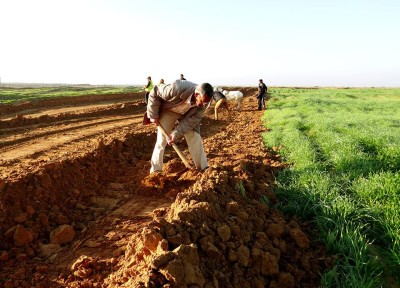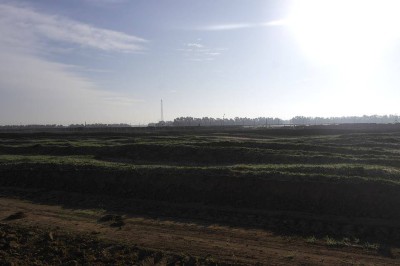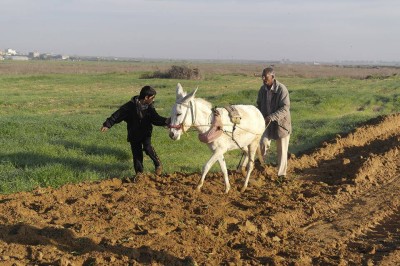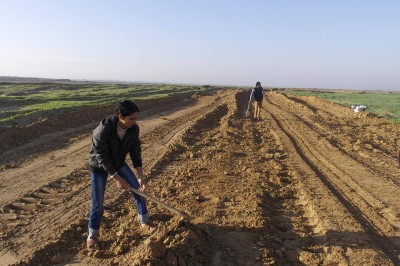22nd January 2014 | Resistenza Quotidiana, Sil | Gaza, Occupied Palestine
http://www.youtube.com/watch?v=1sV8WwE0-SYSince the Zionist occupation forces’ bulldozers had destroyed part of Khaled Qudaih’s field in Khuza’a, east of Khan Younis, he and his family went out to sow it again. The military responded with about half an hour of gunfire, threatening to strike Qudaih directly if he had not moved away.

She came as close as she could, until she reached foreign activists with yellow jackets. She approached and, with the voice of a twelve-year-old child, with the slightly clumsy behavior of those approaching foreigners for the first time, explained that the land is forbidden to her .


In any case, on the 19th, fertilizer was sprayed fertilizer and there was no Zionist aggression.
Qudaih, however, was not entirely satisfied.
There was the land he had planted at the edge of the field, beside the barrier, which had been destroyed by occupation bulldozers. Even that was his land. The Zionists had no right to prevent him from cultivating it, to prevent him from reaping its benefits. He would be back the next day to reclaim it. That land could not be mamnua, “forbidden,” because it was his land, because he had also sown there, because the grain was used to make bread for his family, because the stems and bran are used to feed the sheep in his backyard , and they produce milk to drink and wool for warmth. No, not even the extreme limit of his land, 50 meters from the barrier, could be mamnua land.

Qudaih’s case is not an isolated one. Indeed, one can almost say that he is lucky, because usually, it is impossible to approach the less than 300 meters from the separation barrier. This is not only to attack the freedom of movement of Palestinians in their own land, but also their right to work, and , even worse, their food self-sufficiency. The Gaza Strip’s population density is among the highest in the world and, with its demographic explosion in progress, the enclave is becoming increasingly dependent on external aid, unable to meet its own needs.


While the farmers continue to work, several Jeeps pass on the other side of the barrier. They continue to shoot every now and then, just to remind that they are not gone, and that the land is mamnua. But Qudaih and his family do not move away until a soldier exits a Jeep. He remains a few minutes hidden behind a mound of earth, created to hide the occupation forces,, and then comes out shouting, in Arabic with a strong Hebrew accent, that they have to leave otherwise he will have shoot to hit them.
While it is nice to think that the presence of internationals helped ensure the soldier got the first shot in the air, and that it has discouraged them from directly targeting Qudaih, on the other hand, it is frustrating to realize that if this happens it is only because the world is fundamentally racist , and a witness from the West is more inconvenient than a Palestinian witness.
Meanwhile, the soldier continues to shoot. Not only single shots, but also bursts of gunfire. At first Qudaih continues to plow the land. Then he must desist: He has a family, he can not afford to get hurt, he needs be able to continue working. Then, half an hour after the first rounds of gunfire, all of us return to where the donkey had been left, with the cart, in safer territory.A few grains of wheat remain on a spot that Qudaih has not been able to plow, in a Palestinian land where a violent occupying force said mamnua.

